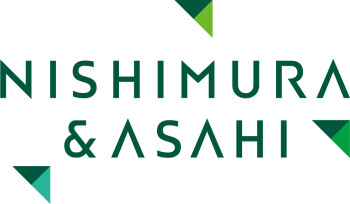
In the past decade, the Japanese manga and entertainment industries have been severely damaged by pirate sites which typically operate on servers located in jurisdictions lacking sufficient copyright protection. For example, the pirate site 'Manga-mura' shocked Japanese society by illegally uploading a large amount of manga and other content that was accessible for free, costing the manga industry up to an estimated Y300 billion.(1) Pirate sites are linked to websites and apps, resulting in a large number of people accessing illegal content. Such websites and apps which do not host pirated content themselves but rather post or provide URLs or links to pirate sites are called 'leech (web)sites and apps' in Japan. The previous Copyright Act did not provide sufficient measures to address the proliferation of pirate sites. Website blocking in this context is not clearly legal under Japanese law and it is often difficult to identify and take action against pirate site operators (although Manga-mura was closed, and its alleged operator was arrested). To address these issues, the 2020 revisions to the Copyright Act introduced new measures to crack down on leech websites and expand the scope of illegal downloading.
Crackdown on leech websites and apps
Leech websites and apps would aid copyright infringement by pirate sites but did not constitute direct copyright infringement under the previous Copyright Act; thus, copyright owners were unable to seek an injunction against leech websites and apps. However, under the amended act, the following actions can now trigger civil and criminal liability for copyright infringement:
- posting URLs or links to pirated content on leech websites and apps; and
- operating leech websites and apps.
Websites and apps are considered to be leech website and apps if they specifically lead to pirate sites (determined by the number of URLs and other factors). With regard to operating leech websites and apps, copyright infringement can be established simply by a website operator leaving URLs or links to pirated content on the website despite being able to remove them.
Under these provisions, copyright protection does not extend to derivative works. In other words, providing a link to access unauthorised derivative works is non-infringing. In addition, , platform service providers such as YouTube or Google are not liable, except for malicious cases such as ignoring requests from copyright owners for the removal of links for a considerable period without justifiable grounds.
On the other hand, both actions can be found to constitute copyright infringement for linking to pirated content provided in a streaming format or linking to pirated content uploaded to servers outside of Japan.
Copyright owners can seek an injunction and compensation for damages against infringers under these provisions. Further, the following criminal penalties apply:
- a provider of URLs may be subject to imprisonment for up to three years, a fine of up to Y3 million or both; and
- an operator of leech sites may be subject to imprisonment for up to five years, a fine of up to Y5 million or both.
The revisions for cracking down on leech websites took effect on 1 October 2020.
Expansion of definition of 'illegal downloading'
Even before the recent amendment to the Copyright Act, downloading pirated music or videos even for private use was already illegal and subject to claims for damages or an injunction and criminal penalties as a prosecutable intentional offence,(3) but downloading other pirated works such as manga was not illegal. In 2019, in order to address the extensive damage caused by the downloading of pirated content other than music or videos, the government attempted to outlaw and criminalise the downloading of all other pirated works, including manga, photographs and books. However, this attempt was abandoned due to opposition on the grounds that the draft amendment act would have outlawed and criminalised such a broad range of downloading that downloading even mere screenshots may have been considered illegal, which could have had a tremendous effect on information gathering. Although the 2020 amendment makes it illegal to download anything other than music or videos, downloads that cause only minor damage to the copyright owner (eg, screenshots), are exempted.
To be more precise, the following acts are exempted:
- unintentionally downloading pirated content, even when grossly negligent;
- downloading derivative works and parodies;
- downloading or screenshotting minor amounts of pirated content, such as a couple of panels of manga; and
- downloading pirated content under special circumstances that do not unfairly prejudice the interests of the copyright owner.
Notably, it is not illegal to simply view pirated content in a streaming format. However, as with the amendment to rules on leech websites, whether pirated content was uploaded to a server outside of Japan is irrelevant to the question of liability.
Criminal penalties against infringers under these amended provisions include imprisonment for up to two years, a fine of up to Y2 million, or both. However, to establish criminal liability, the following elements must be established in addition to the basic elements of copyright infringement:
- the work is fee based (ie, presented to the public for value); and
- the downloading was done continuously or repeatedly.
The revisions to expand the definition of illegal downloading will take effect on 1 January 2021.
Endnotes
(1) Agency for Cultural Affairs, Explanatory Material of the Act for Partial Revisions of the Copyright Act, at 2, available here (in Japanese).
(2) This figure has been created with reference to the explanatory material Id at 3.
(3) See here.





